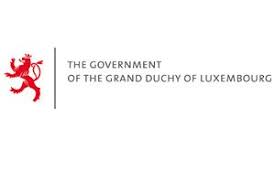Ethiopia CRPFM 2022
EXECUTIVE SUMMARY
The overall performance of public financial management in Ethiopia is generally satisfactory and improving steadily. The legal framework and processes associated with budget preparation and management, treasury management, debt management, accounting and reporting, procurement and asset management, internal audit, external audit, financial information systems, and transparency and accountability in PFM are generally in line with good practice, but they "do not explicitly take climate specifics into account. Such climate-excluding observations are incorporated throughout the report. Key ongoing achievements include, among others, the implementation and expansion of the Integrated Financial Management Information System (IFMIS), the implementation of the e-Procurement system (e-GP). The country has also benefited from IMF support to improve macro-fiscal forecasting and technical assistance to support the Office of the Federal Auditor General (OFAG) and the development of the Accounting and Auditing Board of Ethiopia (AABE), as well as to report on fiscal risks.
In the area of climate responsive Public Financial Management, the IFMIS financial control system could be used to track climate expenditures. The IFMIS system that tracks the budget code, budget sources, as well as the amount of budget allocated for each activity and sector. Hence, the amount of expenditure executed would also allow tracking of climate-related expenditure if an operational tagging mapping would have been implemented. However, IFMIS is not yet used operationally to ensure that climate expenditure is included in transactions and does not allow climate-related expenditure to be highlighted in budget reports.
Ethiopia is supported by the World Bank and the FCDO (formerly DFID) through joint programmes, including climate budget tagging, capacity building in public-private partnerships [PPPs] for climate finance, and improving public investment management systems. The CRGE Facility, the Budget Directorate and the IFMIS project office are working closely with Oxford Policy Management, which manages the FCDO's Building Resilience in Ethiopia (BRE) technical assistance, to establish a system for tagging and tracking climate finance based on budget and expenditure. However, progress on tagging climate-related expenditures is not yet tangible and discussions with the IFMIS team for the creation of new tags are still ongoing. A MRV directorate has also been established within the EFCCC, but a national monitoring, reporting and verification (MRV) system to support its implementation is not yet operational. Particularly, there is not yet a comprehensive and complete monitoring and evaluation system indicating the different actors in the government structure (budgetary institutions, state-owned enterprises and the EBU) and whether they are represented in the modalities of the CRGE facility. Therefore, without detailed measurement, reporting and verification (MRV) of projects and programmes that are expected to have mitigation impacts or co-benefits, it is not possible to establish the balance between activities that could be a carbon source or sink. This is contrary to the expectations of Ethiopia's technical and financial partners, one of whose objectives is the monitoring and reporting of the climate budget.
Furthermore, the climate expenditure policy proposals in the approved medium-term budget estimates do not align clearly enough with the sectors' costed medium-term strategic plans.
Budget preparation and execution is based on each level of administrative, economic and programming classification, but climate-related expenditure is not clearly identified. Guidance provided in the Budget Circular could help on how to factor climate change mitigation or adaptation planned expenditure into budget proposals, but it does not provide a methodology to track climate change related (CRE) expenditure.
The planning process allows the government to strategically allocate resources in the budget, but the procedures in place are not specifically based on climate change criteria. At the project selection level, while projects and related activities are selected according to specific criteria and well-defined processes, a specific prioritisation and selection process for climate-related projects have not yet been put in place.
The coordination process is not yet clearly defined. The audit indicated gaps in terms of coordination of with implementing sector offices and the government has made several readjustments, such as recently the reactivation of the integration of the Environment Protection Authority as the new focal point of the UNFCC and the disappearance of the EFCCC as part of the Environment Protection Authority (EPA). The Planning and Development Commission (PDC) is responsible for monitoring and evaluating all federal government projects, including those implemented by EBUs and public but do not have enough human resources perform its task effectively.
There are no clear guidelines or procedures to deal with climate-related procurement and no guideline requires climate-related standards in rating tenders.
In summary, Ethiopia's overall performance in climate-related public financial management is still basic and not yet aligned with international standards, in part due to the government's inability to produce reports that clearly identify and track climate-related expenditures. Based on the 14 indicators of the PEFA Climate methodology, 5 indicators scored better than or equal to C, 8 indicators received a score lower than C, while one indicator was non-applicable.
The Ethiopia CRPFM 2022 Assessment Scores






